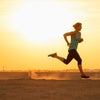https://www.outsideonline.com/running/racing/race-strategy/how-much-does-heat-slow-your-race-pace/
How Much Does Heat Slow Your Race Pace?
Research reveals ideal race temperatures and how to adjust your pace when it heats up.
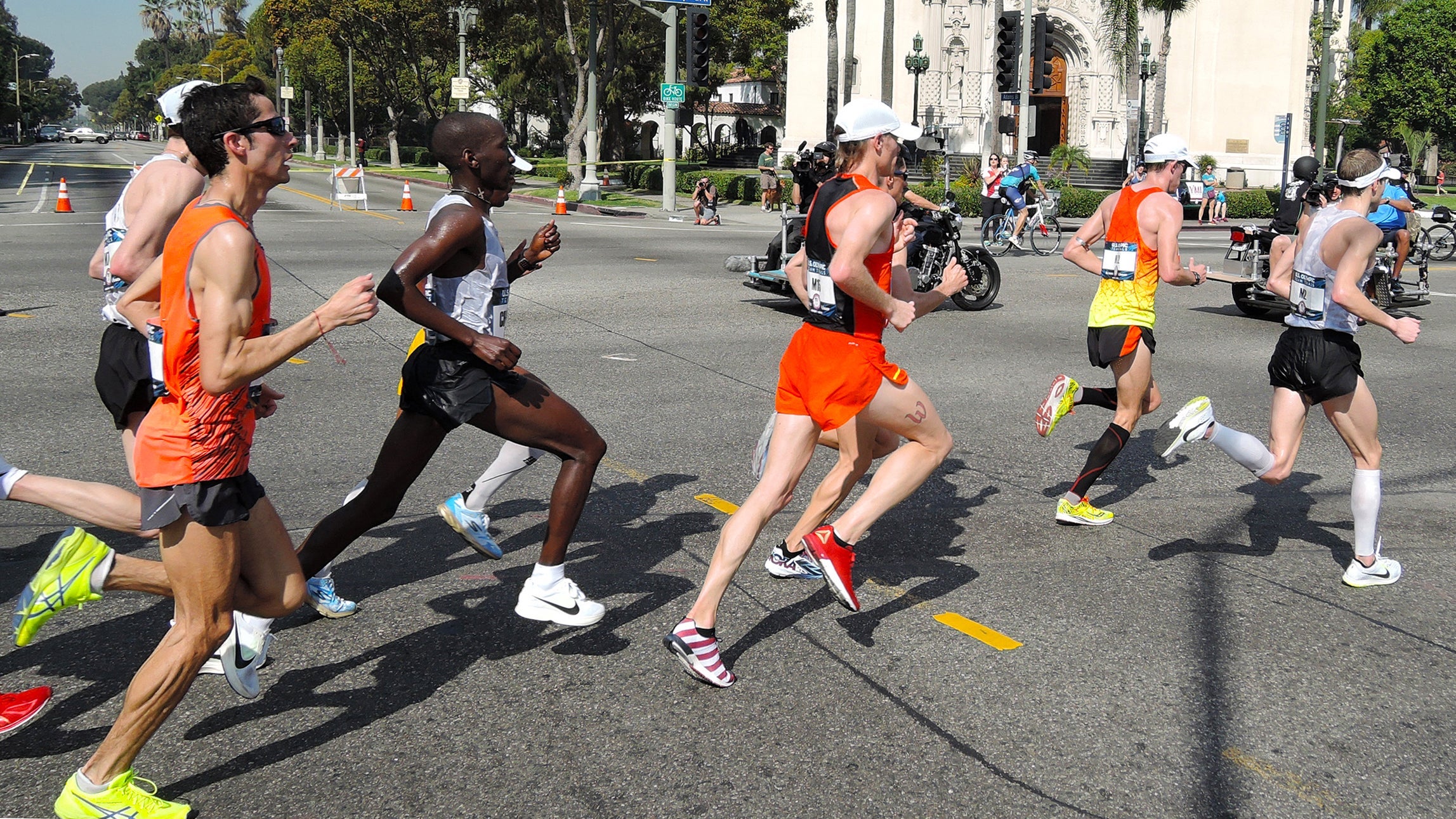
Heading out the door? Read this article on the Outside app available now on iOS devices for members! Download the app.
Runners are well aware that it takes much more effort to maintain your “normal” pace when the temperature rises. Researchers have found that various weather factors such as wind, dew point, wet-bulb temperature, precipitation, and cloud cover all affect running performance to some degree, but none of them have more influence than air temperature. Heat clearly slows your race pace.
Exercising in the heat increases the amount of oxygen we need since some blood flow is redirected from working muscles to the skin in order to cool our bodies. This results in higher energy usage, increased lactate production, and a higher heart rate at a given pace than in cooler weather. Warm temperatures also cause us to fatigue faster by increasing dehydration—leading to reduced stroke volume, cardiac output, and blood pressure.
Is there an optimal temperature range?
The majority of research on the effect of temperature on exercise performance in the past has taken place in the lab—primarily with cyclists pedaling to exhaustion. Recently, however, there have been a number of studies [1, 2, 3, 4, 5, 6, 7, 8] on the influence air temperature has on marathon finishing times—from which we can gain an understanding of ideal running conditions and the effect warmer temperatures have on running performance.
This research has revealed that the optimal temperature range for most groups of runners seems to be between 44° F and 59° F (7–15° C). Below and above this range, marathon finish times tend to become slower, on average.
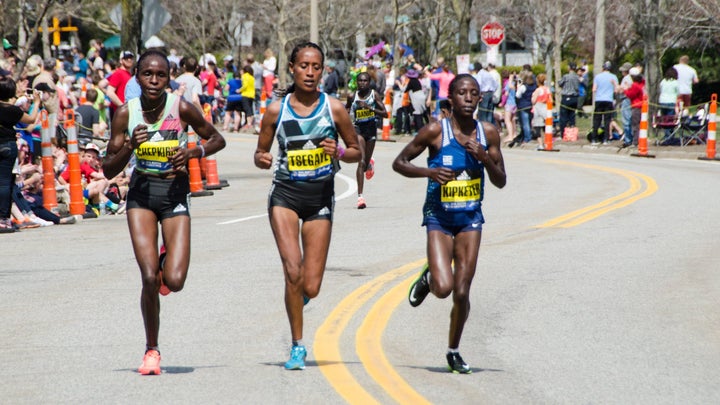
For example, more than two-thirds of both men’s and women’s course records at the Boston Marathon were set in temperatures below 56° F and more than a third were set when the temperature was below 48° F. Researchers also found that most world records, the course record-breaking runs for seven large North American marathons, and the top 10 marathon performances of all-time were set when temperatures were between 50° F and 59° F. In both of these studies, temperature was the most influential weather factor that affected finishing times.
Although most research has focused on elite runners, some recent studies have looked at the effects of air temperature on slower runners. A comprehensive study that included data from the Paris, Berlin, London, Boston, Chicago, and New York Marathons found that most non-elite marathon runners (finishing times between 3:30 and 5:00) performed best in temperatures around 44° F. In addition, a study which included nearly 50 years of Boston Marathon finishers determined that the ideal temperature range is 46° F to 59° F for all finishers (average time of 3:02).
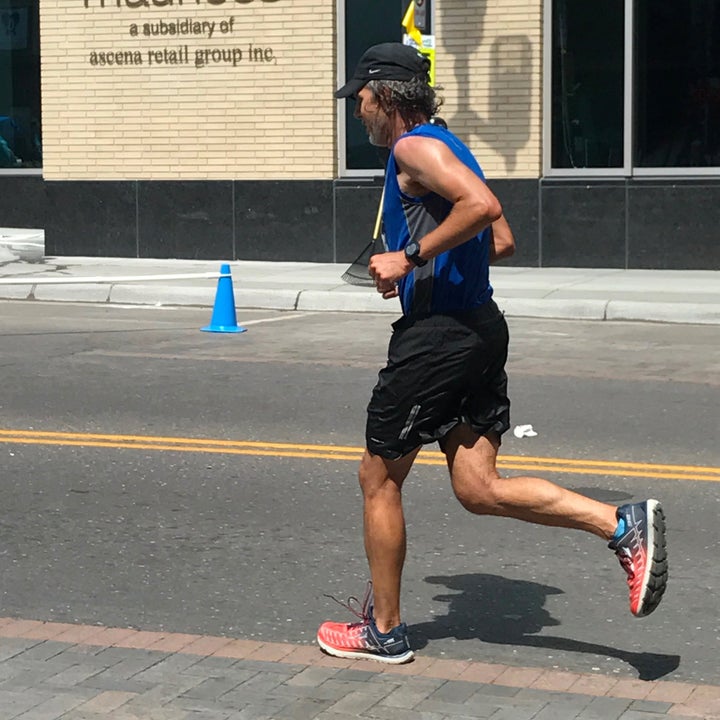
How temperature increases affect different types of runners
Once the temperature rises above the optimal range (>59° F), perceived effort rises and pace slows for most runners. How much the temperature increase affects you depends on how fast you are and whether you are male or female.
The studies reveal that:
• Runners averaging ~5:45 pace or faster slowed approximately 1 second per mile for each 1° C (1.8° F) increase in temperature.
• Runners who averaged 7:25 to 10:00/mile slowed between 4 and 4.5 seconds per mile for each 1° C (1.8° F) higher than 59° F.
The temperatures for optimal running performance for women tend to be at the cooler end of the range, especially for faster female runners. Women, however, are affected less by rising temperatures than men.
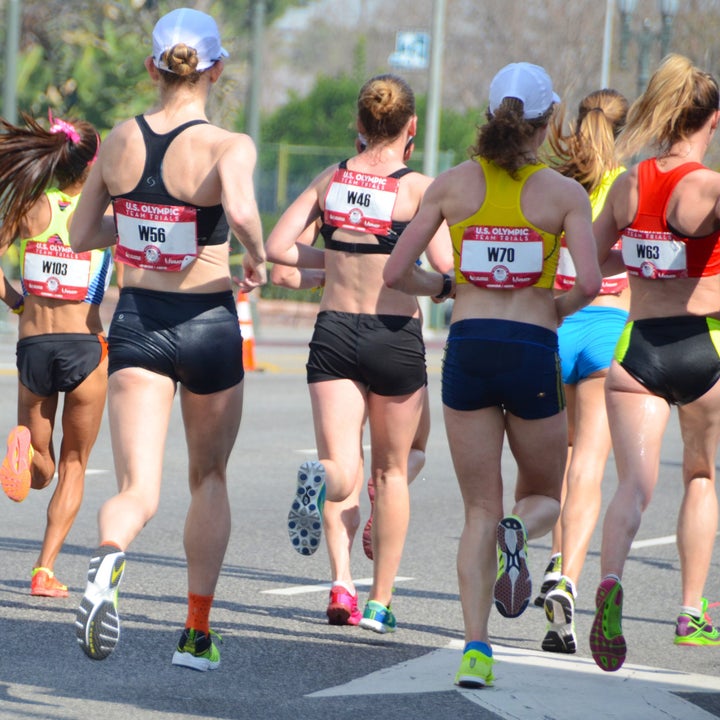
Researchers surmised that since elite runners and women tend to be lighter, they likely have lower metabolic heat production due to their lower body mass and their high surface area to body mass ratio. Therefore, less energy is needed to cool the body and there is less stress on the cardiovascular system. In addition, faster runners spend less time exposed to high temperatures, which could be a reason they are affected less than slower runners.
Adapting to and planning for heat
The good news is that running in the heat does get easier, and there are benefits. Research shows that with repeated exposures to exercise in the heat, physiological measures such as VO2max and lactate threshold, as well as cardiovascular parameters such as cardiac output and plasma volume improved. This acclimation can lead to faster times no matter if the weather is cool or hot.
On race day, however, you’ll need to take the heat into account as you pace. Using the research, a 3:30 marathoner, for example, should add 2–2.5 seconds to their pace for every degree F above 59° F. Thus, if the temperature is 75° F, what would be a 3:30 effort on a cool day will result in a 3:44 to 3:47 finish.
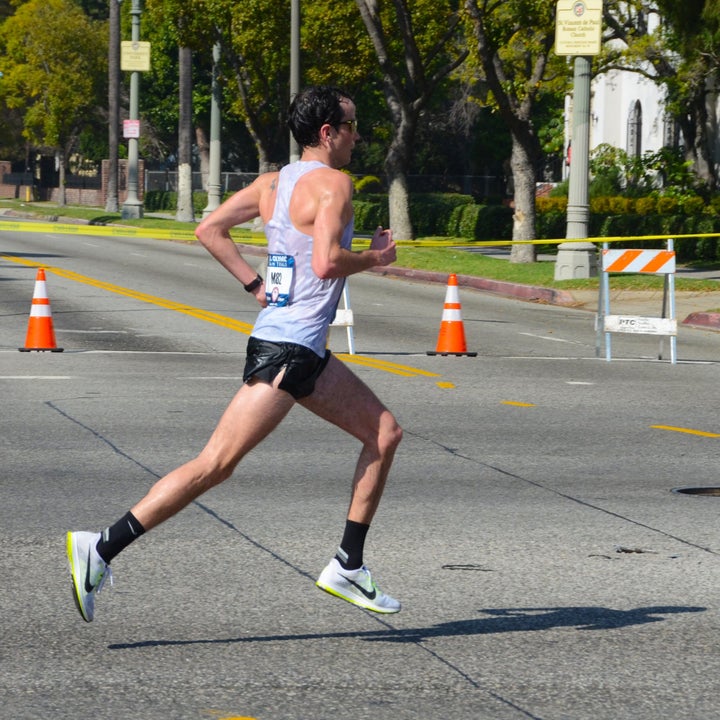
Knowing the average race temperature can help you select a goal marathon, particularly important if you’re aiming for a PR or a BQ. Results from research on how temperature affects running performance is included in the algorithm used to create the PR Score for each marathon at FindMyMarathon.com. This temperature component utilizes the average mid-race temperature and the average marathon finish time to establish a baseline of how much the temperature may impact runners. It’s not just the race day average, the actual time of the race is used for this calculation. High temperatures will lower the overall PR Score.
While you can’t predict exactly what race day will bring, data through the years can give you an idea of what range to expect. And, if it turns out to be an unseasonably warm one, adjusting your pace early and accurately—along with appropriate hydrating and cooling strategies—can help you finish strong.
